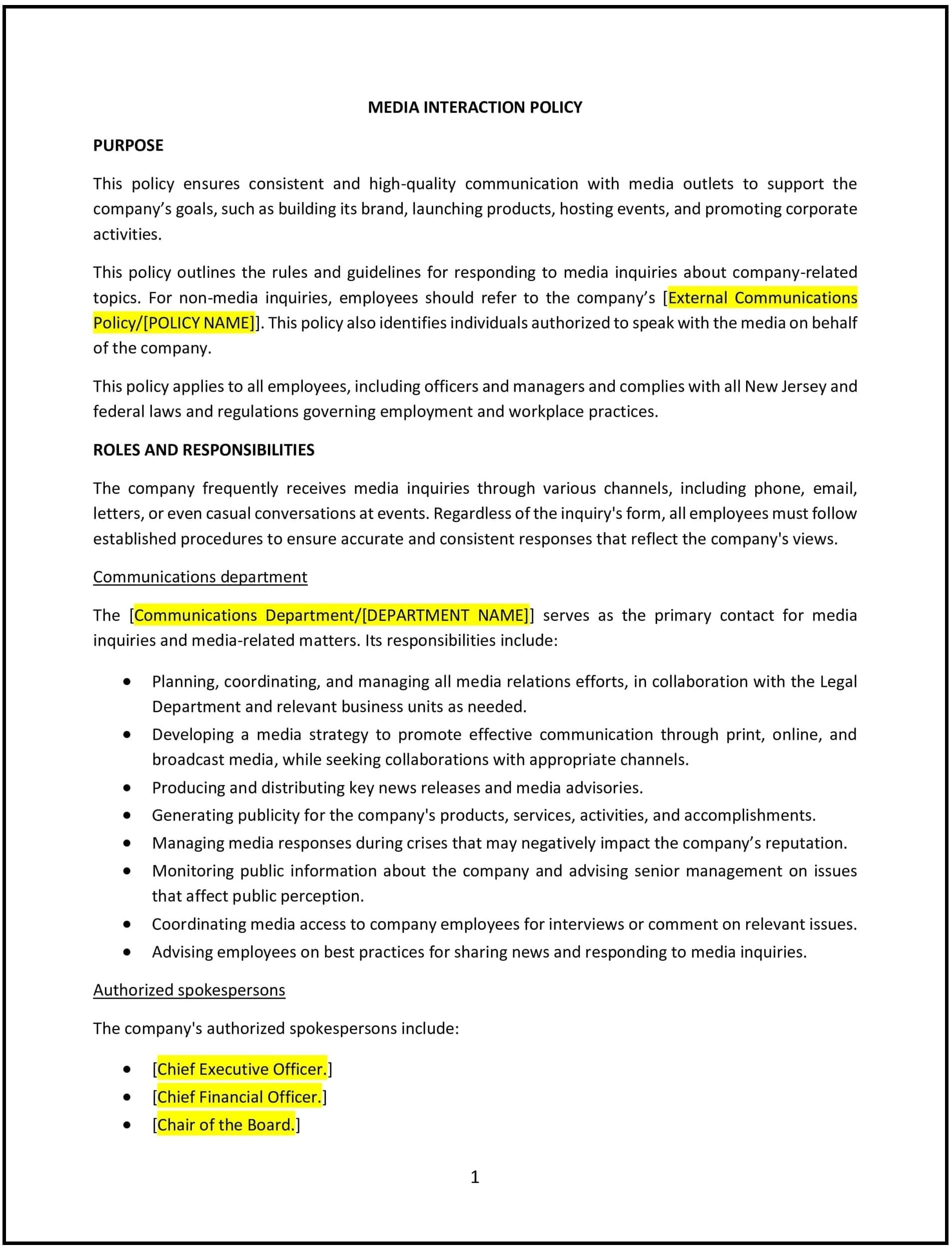Got contracts to review? While you're here for policies, let Cobrief make contract review effortless—start your free review now.

Customize this template for free
Media relations policy (New Jersey)
A media relations policy helps New Jersey businesses manage interactions with journalists, reporters, and news outlets while maintaining a consistent and professional public image. This policy outlines spokesperson designations, procedures for handling media inquiries, and guidelines for public statements. It also sets expectations for social media engagement and crisis communication strategies.
By adopting this policy, businesses in New Jersey can protect brand reputation, control messaging, and establish clear protocols for responding to media requests.
How to use this media relations policy (New Jersey)
- Designate authorized spokespersons: Identify employees who are approved to speak with the media, such as executives, PR personnel, or designated managers.
- Establish media inquiry procedures: Require employees to direct all media requests to the appropriate spokesperson or communications team.
- Set guidelines for public statements: Ensure that official statements align with company values, strategic messaging, and brand reputation goals.
- Outline crisis communication protocols: Provide steps for managing media inquiries during emergencies, controversies, or sensitive situations.
- Manage social media engagement: Establish rules for discussing company-related matters on social media platforms and discourage unauthorized sharing of sensitive information.
- Maintain confidentiality: Prohibit employees from disclosing non-public, financial, or proprietary information to the media.
- Encourage internal coordination: Require internal teams to collaborate before issuing public statements or responding to press requests.
- Review and update: Regularly assess the policy to align with changing media trends, business strategies, and New Jersey public relations standards.
Benefits of using this media relations policy (New Jersey)
This policy provides several benefits for New Jersey businesses:
- Protects brand reputation: Ensures consistent messaging and prevents misinformation.
- Reduces the risk of unauthorized disclosures: Establishes clear procedures for media interactions.
- Enhances crisis response: Helps businesses manage public relations during emergencies.
- Strengthens media relationships: Creates a structured approach for handling press inquiries professionally.
- Improves internal communication: Encourages collaboration between departments before engaging with the media.
Tips for using this media relations policy (New Jersey)
- Communicate the policy clearly: Ensure employees understand who is authorized to speak to the media and how to handle press inquiries.
- Train spokespersons on media engagement: Provide coaching on handling interviews, press conferences, and public speaking.
- Monitor media coverage: Track how the company is represented in the media and address inaccuracies when necessary.
- Establish a media response protocol: Prepare messaging templates and response strategies for different scenarios.
- Review the policy regularly: Update the policy to reflect evolving media practices and business communication strategies.